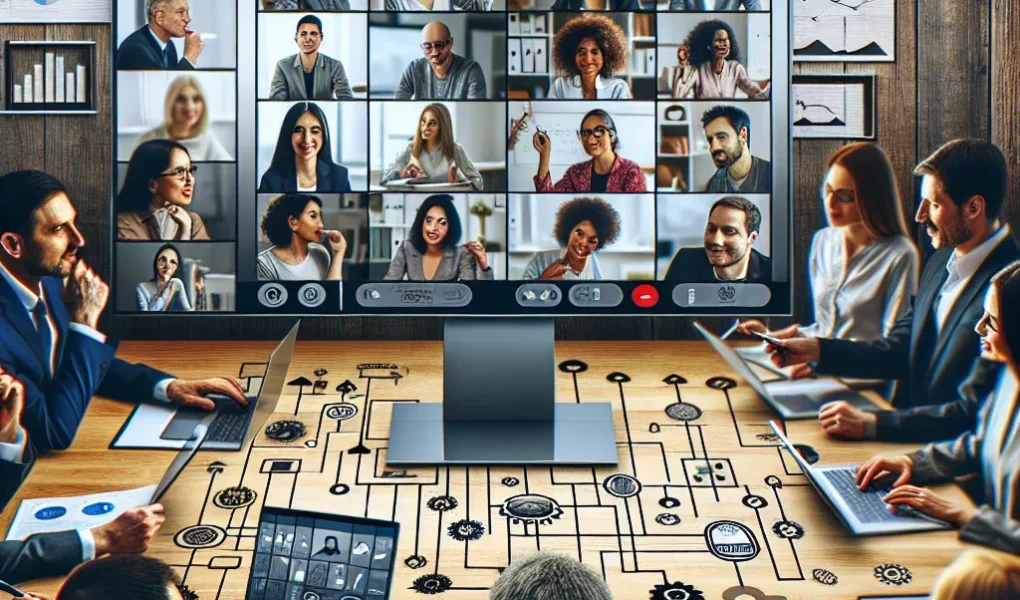Strategies for Successful Remote Work in Advertising Agencies
As remote work becomes the new normal, advertising agencies are adapting their strategies to ensure successful collaboration and productivity. One of the key aspects of this adaptation is the implementation of effective communication tools. With the physical distance between team members, agencies are leveraging technology such as video conferencing, project management software, and instant messaging platforms to keep everyone connected and informed. By utilizing these tools, teams can maintain open lines of communication and ensure that projects are progressing smoothly.
Furthermore, agencies are reevaluating their processes to accommodate remote work. This often involves establishing clear guidelines for task delegation, deadlines, and expectations. Project management methodologies such as Agile and Scrum are being embraced to facilitate workflow transparency and accountability, enabling teams to effectively manage their tasks despite not being in the same physical space.
To foster a sense of unity and belonging among remote teams, agencies are also prioritizing virtual team building activities and regular check-ins. By organizing virtual social events, team members can interact in a relaxed setting, strengthening their connections and maintaining a positive team dynamic.
Additionally, agencies are recognizing the importance of providing the right infrastructure and support for their employees. This includes ensuring that team members have access to necessary resources, ergonomic workstations, and technical support to optimize their remote work experience.
In conclusion, successful remote work in advertising agencies involves a comprehensive approach that encompasses effective communication, streamlined processes, team cohesion, and adequate support. By implementing these strategies, agencies can ensure that their teams remain productive and collaborative, regardless of their physical location.
Challenges and Solutions for Collaborating Remotely in Marketing Firms
As marketing firms navigate the shift toward remote work, they are encountering both challenges and opportunities in collaborating effectively. One of the primary hurdles is the lack of in-person interaction, which can hinder spontaneous idea generation and impede the brainstorming process. Additionally, maintaining clear and consistent communication poses a significant challenge, particularly when team members are dispersed across different time zones.
To address these challenges, marketing agencies are leveraging various digital tools and platforms to facilitate collaboration. Project management software such as Asana, Trello, or Monday.com allows teams to organize tasks, set priorities, and track progress in real time. Video conferencing tools like Zoom and Microsoft Teams have become essential for conducting virtual meetings and fostering face-to-face interactions, albeit in a digital format. Moreover, cloud-based storage and file-sharing systems such as Google Drive and Dropbox enable seamless access to shared documents and resources.
In addition to technological solutions, establishing structured communication protocols and scheduling regular check-ins can help mitigate the drawbacks of remote collaboration. Encouraging transparent and open communication channels, setting clear expectations for deliverables, and defining well-defined roles and responsibilities are crucial for ensuring effective teamwork in a remote setting.
Furthermore, some marketing firms are exploring innovative approaches to replicate the creative energy of in-person collaboration in virtual environments. Virtual brainstorming sessions, design thinking workshops, and collaborative virtual whiteboards are being employed to spark creativity and foster a sense of togetherness among team members who are physically apart.
In conclusion, while remote work presents its share of challenges for marketing firms in terms of collaboration, the adoption of appropriate digital tools, combined with structured communication and creative virtual engagement strategies, can pave the way for successful remote teamwork and innovation.
The Future of Agency Work: Navigating Remote Collaboration and Productivity
As the world continues to adapt to the challenges of remote work, agencies are also navigating the future of collaboration and productivity in a decentralized work environment. One of the key aspects of this transition is the shift towards implementing advanced digital collaboration tools. From project management platforms to virtual whiteboards, agencies are leveraging technology to ensure seamless communication and efficient teamwork.
Furthermore, agency leaders are focusing on reshaping their approach to performance evaluation and goal setting in a remote setting. Instead of relying on traditional metrics such as hours worked in the office, the emphasis is shifting towards measuring outcomes and deliverables. This strategic shift allows professionals to maintain high productivity levels while having the flexibility to manage their work according to their individual schedules.
Embracing a remote work model has also prompted agencies to reevaluate their hiring and talent acquisition strategies. With the geographical barriers removed, agencies now have access to a global talent pool, allowing them to recruit the best professionals regardless of their location. This shift towards a more diverse and distributed workforce brings a wealth of fresh perspectives and skill sets to the table, driving innovation and creativity within agency teams.
In order to ensure the long-term success of remote collaboration, agencies are investing in comprehensive training programs focused on digital fluency and remote work best practices. By equipping their teams with the necessary skills and resources, agencies are empowering their employees to thrive in a virtual work environment while maintaining high levels of collaboration and productivity.
In conclusion, the future of agency work is poised to be defined by seamless remote collaboration, reimagined performance evaluation, global talent acquisition, and a focus on digital fluency. By embracing these changes, agencies are not only adapting to the current challenges but also laying the foundation for a dynamic and innovative future of work.



